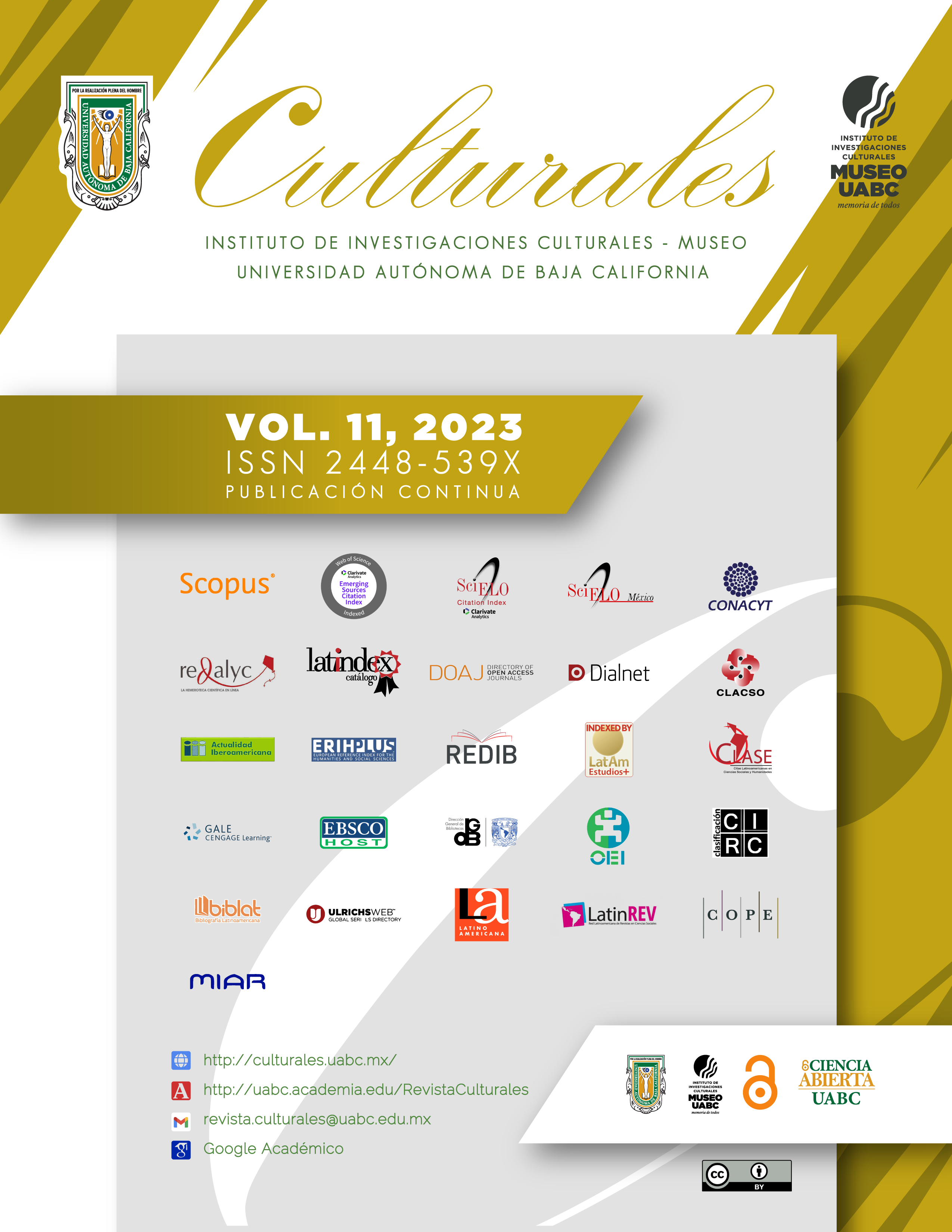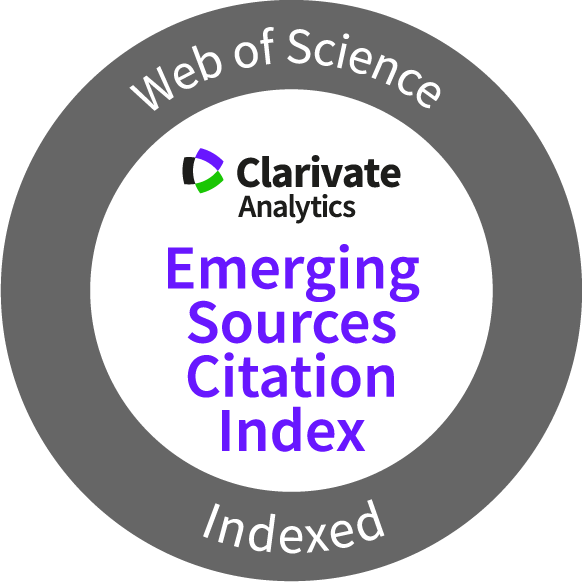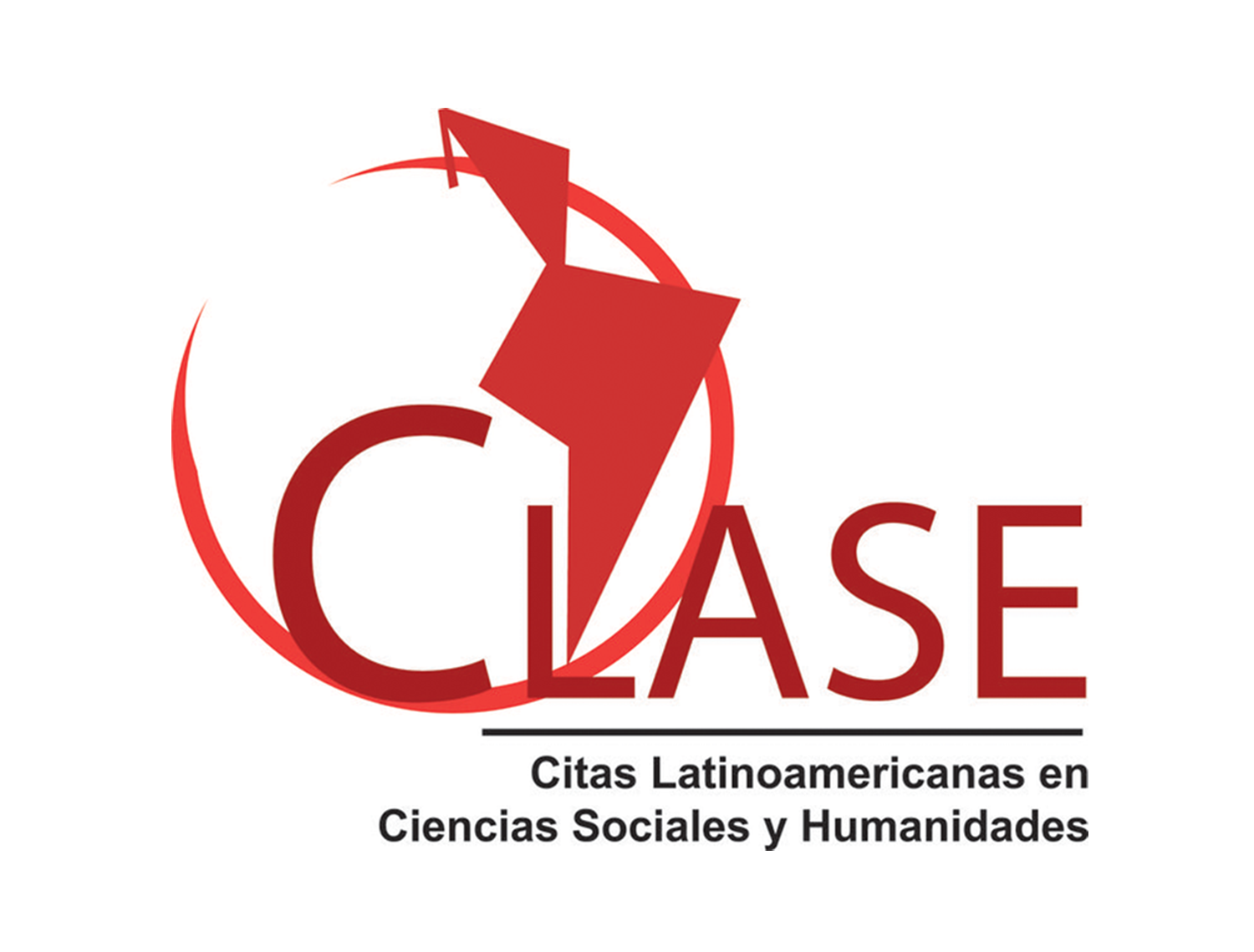La ruta hacia el veganismo. Una aproximación desde los afectos a través de relatos de vida
DOI:
https://doi.org/10.22234/recu.20231101.e737Palabras clave:
Veganismo, Emociones, Experiencias catalìticas, Animales, AhmedResumen
Este artículo examina los inicios de trayectorias de vida veganas, siguiendo la perspectiva de Sara Ahmed respecto de la productividad social de las emociones. Nuestro objetivo es comprender cómo operan los afectos en el devenir vegano y para ello analizaremos relatos –recogidos mediante entrevistas con enfoque biográfico– sobre experiencias catalíticas y el contacto con animales durante la infancia de jóvenes veganos. En ambas instancias se observa que afectos como el miedo, la repugnancia y el amor se presentan simultáneamente, impulsando acciones de alejamiento y acercamiento, identificaciones y alterizaciones que configuran la experiencia. Sostendremos que las experiencias catalíticas corresponden a una toma de conciencia y a la búsqueda de consecuencia que descansa en el entrecruzamiento de emoción, sensación y cognición. Además, propondremos que el camino al veganismo se pavimenta de contactos e impresiones que marcan los cuerpos y resuenan en las trayectorias.
Descargas
Citas
Abrams, L. (2014). Liberating the female self: Epiphanies, conflict and coherence in the life stories of post-war British women. Social History, 39(1), 14-35. https://doi.org/10.1080/03071022.2013.872904
Adams, C. (2010). The Sexual Politics of Meat: A Feminist-Vegetarian Critical Theory. Continum.
Ahmed, S. (2000). Strange Encounters. Embodied others in post-coloniality. Routledge.
Ahmed, S. (2004). Affective Economies, Social Text, 79(22), 117-139. https://doi.org/10.1215/01642472-22-2_79-117
Ahmed, S. (2010a). “Happy Objects”, En M. Gregg and G. Seigworth (Eds.), The affect theory reader (pp. 29-51). Duke University Press. https://doi.org/10.1215/9780822393047-001
Ahmed, S. (2010b). Killing joy: feminism and the History of Happiness. Signs, 35, 571-594. https://doi.org/10.1086/648513
Ahmed, S. (2015). La política cultural de las emociones. Universidad Nacional Autónoma de México.
Beardsworth, A. & Keil, T. (1992). The vegetarian option: Varieties, conversions, motives and careers. The Sociological Review, 40(2), 253-293. https://doi.org/10.1111/j.1467-954X.1992.tb00889.x
Boisseron, B. (2018). Afro Dog: Blackness and the animal question. Columbia.
Cherry, E. (2010). Shifting Symbolic Boundaries: Cultural Strategies of the Animal Rights Movement. Sociological Forum, 25, 450-475. https://doi.org/10.1111/j.1573-7861.2010.01191.x
Cornejo, M.; Mendoza, F. y Rojas, R. (2008). La investigación con relatos de vida: pistas y opciones del diseño metodológico. Psykhe, 17(1), 29-39. https://doi.org/10.4067/S0718-22282008000100004
Denzin, N. (1989). Interpretive Biography. SAGE. https://doi.org/10.4135/9781412984584
Díaz, E. (2012). Perfil del vegano/a activista de liberación animal en España. Reis, 139, 175-188.
Douglas, M. (1995) “Las estructuras de lo culinario”. En J. Contreras (Comp.) Alimentación y Cultura. Necesidades, gustos y costumbres (pp. 171-197). Ediciones Universidad de Barcelona.
Douglas, M. (2007) [1966]. Pureza y Peligro. Un análisis de los conceptos de contaminación y tabú. Nueva Visión.
Fischler, C. (1990). L’(h)omnivore. Odile Jacob.
Giacoman, C.; Alfaro, J.; Aguilera, I. & Torres, R. (2021). Becoming vegan: A study of career and habitus. Social Science Information, 60(4), 560–582. https://doi.org/10.1177/05390184211049933
Giddens, A. (1991). Modernity and Self-identity: Self and Society in the Late Modern Age. Stanford University Press.
Green, B. (2016). ‘I Always Remember That Moment’: Peak Music Experiences as Epiphanies. Sociology, 50(2), 333-348. https://doi.org/10.1177/0038038514565835
Greenebaum, J. (2012). Veganism, Identity and the Quest for Authenticity. Food, Culture & Society, 15(1), 129-144. https://doi.org/10.2752/175174412X13190510222101
Gregg, M. & Seigworth, G. (2010). “An Inventory of Shimmers”. En M. Gregg and G. Seigworth (Eds.), The affect theory reader (pp. 1-25). Duke University Press.
Güelman, M. (2013). Las potencialidades del enfoque biográfico en el análisis de los procesos de individuación. Revista Latinoamericana de Metodología de la Investigación Social, 5, 56-68.
Hansson, N. & Jacobsson, K. (2014). Learning to Be Affected: Subjectivity, Sense, and Sensibility in Animal Rights Activism. Society & Animals, 22(3), 262-288. https://doi.org/10.1163/15685306-12341327
Harris, M. (2011) [1985]. Bueno para comer, Alianza Editorial.
Herzog, H. y Golden, L. (2009). Moral emotions and social activism: The case of animal rights. Journal of Social Issues, 65(3), 485-498. https://doi.org/10.1111/j.1540-4560.2009.01610.x
Highmore, B. (2010). Bitter after taste: affect, food and social aesthetics. En M. Gregg and G. Seigworth (Eds.), The affect theory reader (pp. 118-137). Duke University Press. https://doi.org/10.1215/9780822393047-005
Jacobsson, K. & Lindblom, J. (2013). Emotion work in animal right activism: a moral sociological perspective. Acta Sociológica, 56(1), 55-68. https://doi.org/10.1177/0001699312466180
Jamison, W.; Wenk, C. & Parker, J. (2000), Every sparrow that falls: understanding animal rights activism as functional religion. Society & Animals, 8(3), 305-330. https://doi.org/10.1163/156853000511140
Jasper, J. & Poulsen, J. (1995). Recruiting Strangers and Friends: Moral Shocks and Social Networks in Animal Rights and Anti-Nuclear Protests. Social Problems, 42, 493-512. https://doi.org/10.2307/3097043
Macón, C. (2014). Género, afectos y política: Lauren Berlant y la irrupción de un dilema. Debate Feminista, 49, 163-186. https://doi.org/https://doi.org/10.1016/S0188-9478(16)30009-3
McDonald, B. (2000). “Once You Know Something, You Can’t Not Know It” An Empirical Look at Becoming Vegan. Society & Animals, 8(1), 1-23. https://doi.org/10.1163/156853000X00011
McKenzie, J. & Watts, D. (2020). “Things like tinned burgers and tinned macaroni, I ate as a kid—I would not look at it twice!” Understanding changing eating practices across the lifecourse. Food, Culture & Society, 23(1), 66-85. https://doi.org/10.1080/15528014.2019.1679559
Méndez, A. (2020). América Latina: movimiento animalista y luchas contra el especismo. Nueva Sociedad, 288, 45-57.
Michelson, C. (2022). Hacer la noche. Paidós.
Navarro, A. (2016). Carnismo y educación especista: redes de significaciones en las representaciones sociales que estructuran el especismo antropocéntrico en Argentina. Revista Latinoamericana de Estudios Críticos Animales, 2, 53-102.
Pallotta, N. (2005). Becoming an animal rights activist: an exploration of culture, socialization, and identity transformation. [Tesis de doctorado], Departamento de Sociología, Universidad de Georgia.
Pallotta, N. (2008). Origin of adult animal rights lifestyle in childhood responsiveness to animal suffering. Society and Animals, 16, 149-170. https://doi.org/10.1163/156853008X291435
Presser, L.; Schally, J. & Vossler, C. (2020). Life as a reflexive project: the logics of ethical veganism and meat eating. Society & Animals, 28, 713-732. https://doi.org/10.1163/15685306-12341583
Rothgerber, H. & Mican, F. (2014). Childhood pet ownership, attachment to pets, and subsequent meat avoidance. The mediating role of empathy toward animals. Appetite, 79, 11-17. https://doi.org/10.1016/j.appet.2014.03.032
Rozin, P. (1995). “Perspectivas psicobiológicas sobre las preferencias y aversiones alimentarias”. En J. Contreras (Comp.). Alimentación y Cultura. Necesidades, gustos y costumbres (pp. 85-109). Ediciones Universidad de Barcelona.
Rozin, P.; Markwith, M. y Stoess, C. (1997). Moralization and Becoming a Vegetarian: The Transformation of Preferences into Values and the Recruitment of Disgust. Psychological Science, 8(2), 67-73. https://doi.org/10.1111/j.1467-9280.1997.tb00685.x
Sautu, R. (1999). El método biográfico. La reconstrucción de la sociedad a partir del testimonio de los autores. Editorial de Belgrano.
Solana, M. (2020). Afectos y emociones. ¿una distinción útil? Revista Diferencia(s), 10, pp. 29-40.
Sutton, D. (2001). Remembrance of Repasts: An Anthropology of Food and Memory. Berg Editores. https://doi.org/10.5040/9781350044883
Sutton, D. (2010). Food and the senses. Annual Review of Anthopology, 39, 209-223. https://doi.org/10.1146/annurev.anthro.012809.104957
Tabilo, I. (2020). Introducción. Enfoque biográfico y curso de vida: caminos paralelos para un destino común. Revista Contenido. Cultura y Ciencias Sociales, 10, 1-21.
Twine, R. (2014). Vegan Killjoys at the table. Constesting happiness and negotiating relationships whith food practices. Societies 4(4), 623-639. https://doi.org/10.3390/soc4040623
Twine, R. (2017). A Practice Theory Framework for Understanding Vegan Transition. Animal Studies Journal, 6(2), 192-224.
Wainwright, S. & Turner, B. (2004). Epiphanies of embodiment: Injury, identity and the balletic body. Qualitative Research, 4(3), 311-337. https://doi.org/10.1177/1468794104047232
Weismantel, M. (1989). Food, Gender and Poverty in the Ecuadorian Andes. University of Pennsylvania Press.
Descargas
Publicado
Cómo citar
Número
Sección
Licencia
Derechos de autor 2023 Isabel Margarita Aguilera Bornand, Juan Alfaro, Claudia Giacoman Hernández

Esta obra está bajo una licencia internacional Creative Commons Atribución 4.0.
Culturales permite compartir, copiar y redistribuir el material en cualquier medio o formato; adaptar, remezclar, transformar y crear a partir del material para cualquier propósito, incluso comercialmente, dando crédito a la obra de manera adecuada y proporcionando un enlace a la licencia indicando si se han realizado cambios.
Culturales se encuentra bajo la Licencia Creative Commons Atribución 4.0 Internacional (CC BY 4.0)






















